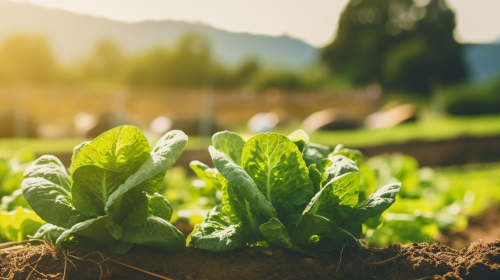
16 February 2024
The Department for Environment, Food & Rural Affairs (Defra) has announced that more than ten thousand (equivalent to 1 in eight) farmers in England have applied to this year’s Sustainable Farming Incentive (SFI) scheme which opened in September. The scheme, which includes action for improving soil health, was given a 10% average uplift in payments at the start of 2024, and 50 new payable actions were added.
After multiple delays, Biodiversity Net Gain (BNG) rules have come into force in England. The scheme requires most construction projects to deliver 10% net gain in biodiversity or habitat through on or off-site development, or through the purchase of biodiversity credits from the government. Soil conditions are mentioned as a consideration for developers planning for on-site BNG.
Scotland’s First Minister Humza Yousaf has confirmed that farmers will continue to receive direct payments when Common Agricultural Policy (CAP) subsidies come to an end. When the new Scottish support system comes into place, 70% of money will be earmarked for direct support, with the other 30% held for targeted measures.
Farmers in Wales have come together to share their frustration over the government’s future Sustainable Farming Scheme (SFS) which is due to replace CAP payments. Concerns were raised about the impact on food production as the scheme proposes that 20% of land must be allocated to trees and semi-natural habitat. Soil health planning is part of the proposed SFS, and the consultation is open for responses until 7th March.
An EU Joint Research Centre study has shown that the global soil erosion rate by water is estimated to rise by 30% to 66% by 2070, resulting in a global GDP loss of between $216 billion and $625 billion. The study aimed to develop previous regional studies to look at the global impact of soil erosion, and identified India and countries in central-south Africa as most at risk.
An article in Forbes has discussed why CEOs should be interested in protecting soil health. It explains why healthy soil is so important, and why investing in soil is a smart business decision, pointing to shifting consumer values, brand reputation and supply chain issues. It also advises on practical steps for mitigating risk and improving soil health.
Microplastics in farmland soils featured on an episode of BBC’s Farming Today, discussing their increasing presence from fertiliser and plastic crop cover use. It was highlighted how microplastics negatively impact soil health and can enter the food chain through crops. Environmental scientist Dr Sam Cusworth said that there is a need for collaborative product development to reduce reliance on inputs containing plastics.
A farmer in Norfolk has become the first in the UK to receive a Soil Food Web qualification. The qualification, obtained by only 39 people worldwide, teaches how to analyse soil samples and allows him to create retail composts. The qualification was designed by soil scientist Dr Elaine Ingham and aims to educate farmers to be more productive and profitable through soil management.
Wales’ environment watchdog has decided to take no action over a school in Powys where 800 tonnes of contaminated soil had to be removed. A leak of kerosene oil polluted the soil led to the removal, however as there was no broader ground or water pollution, it was decided that no enforcement action was necessary.